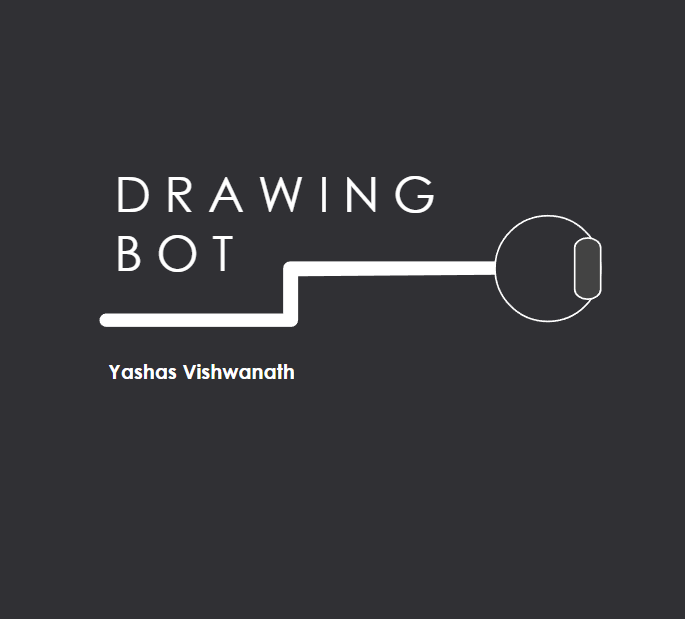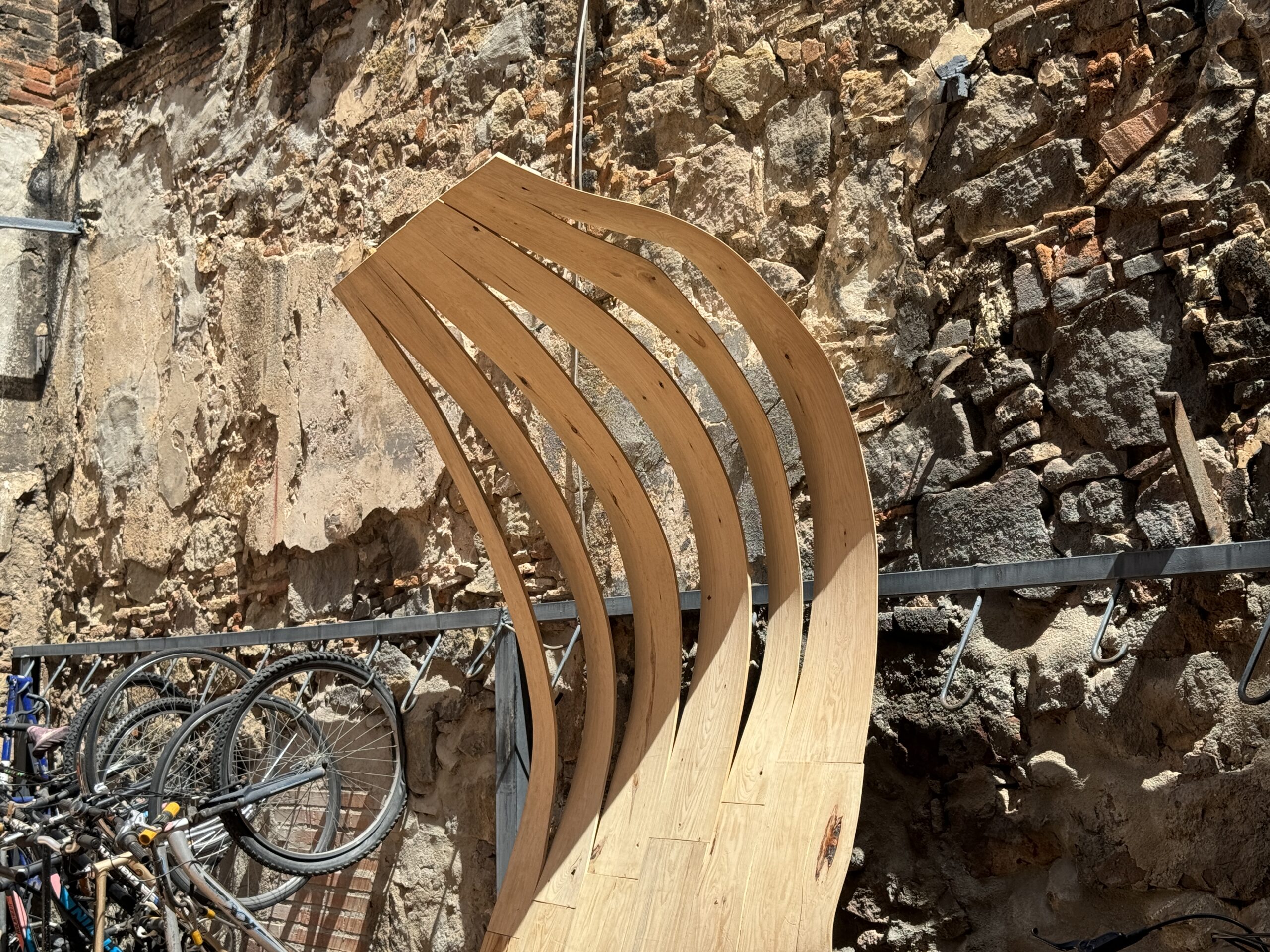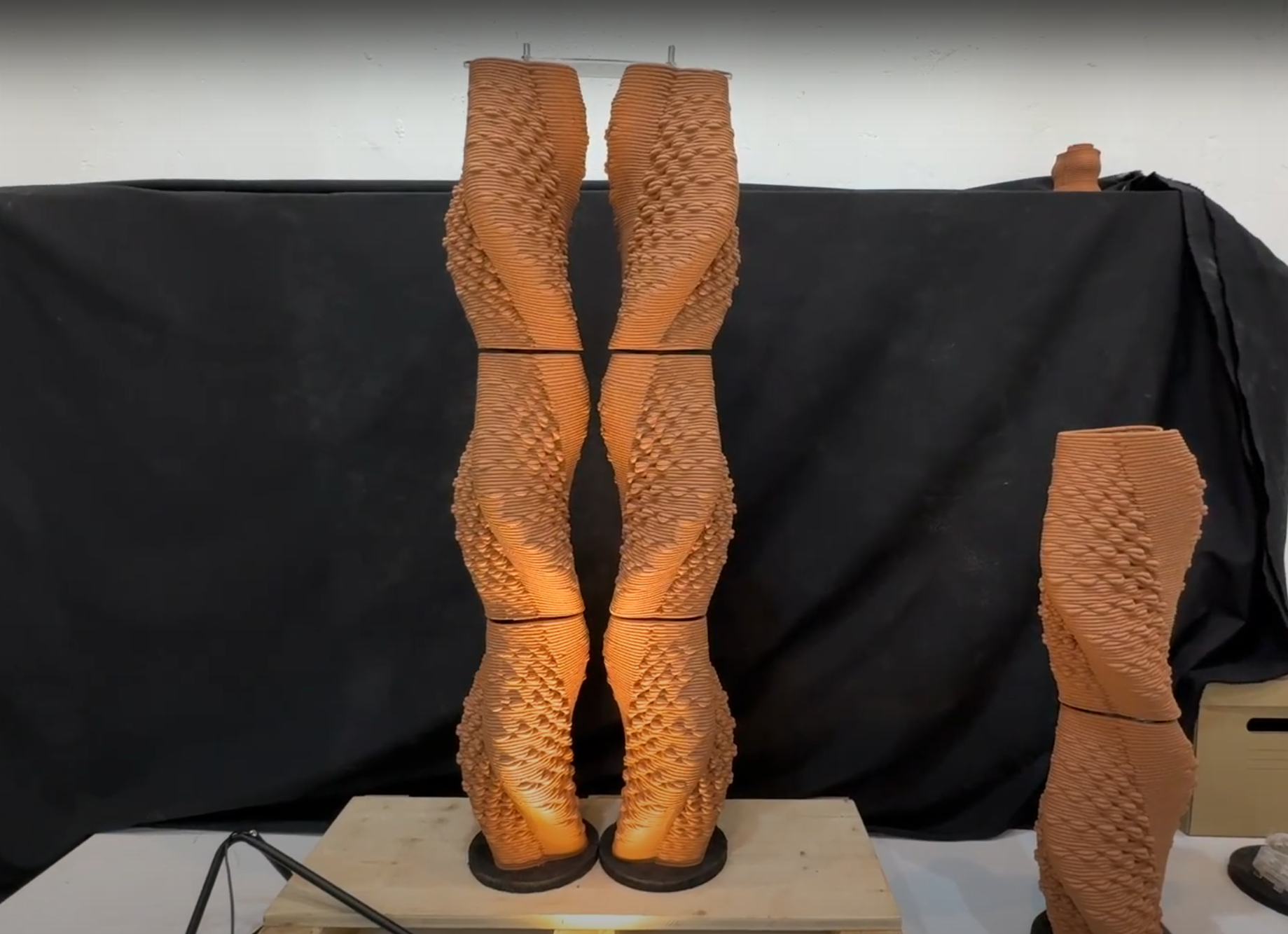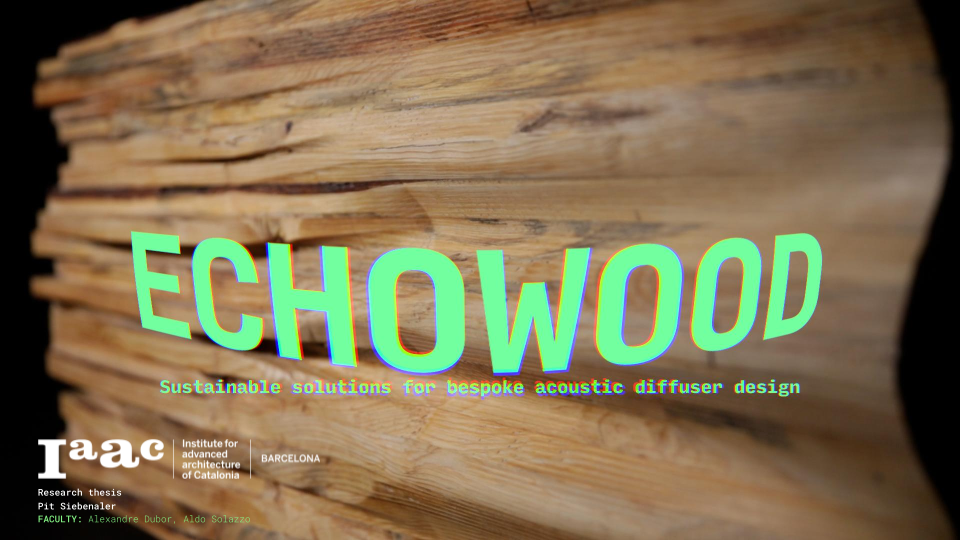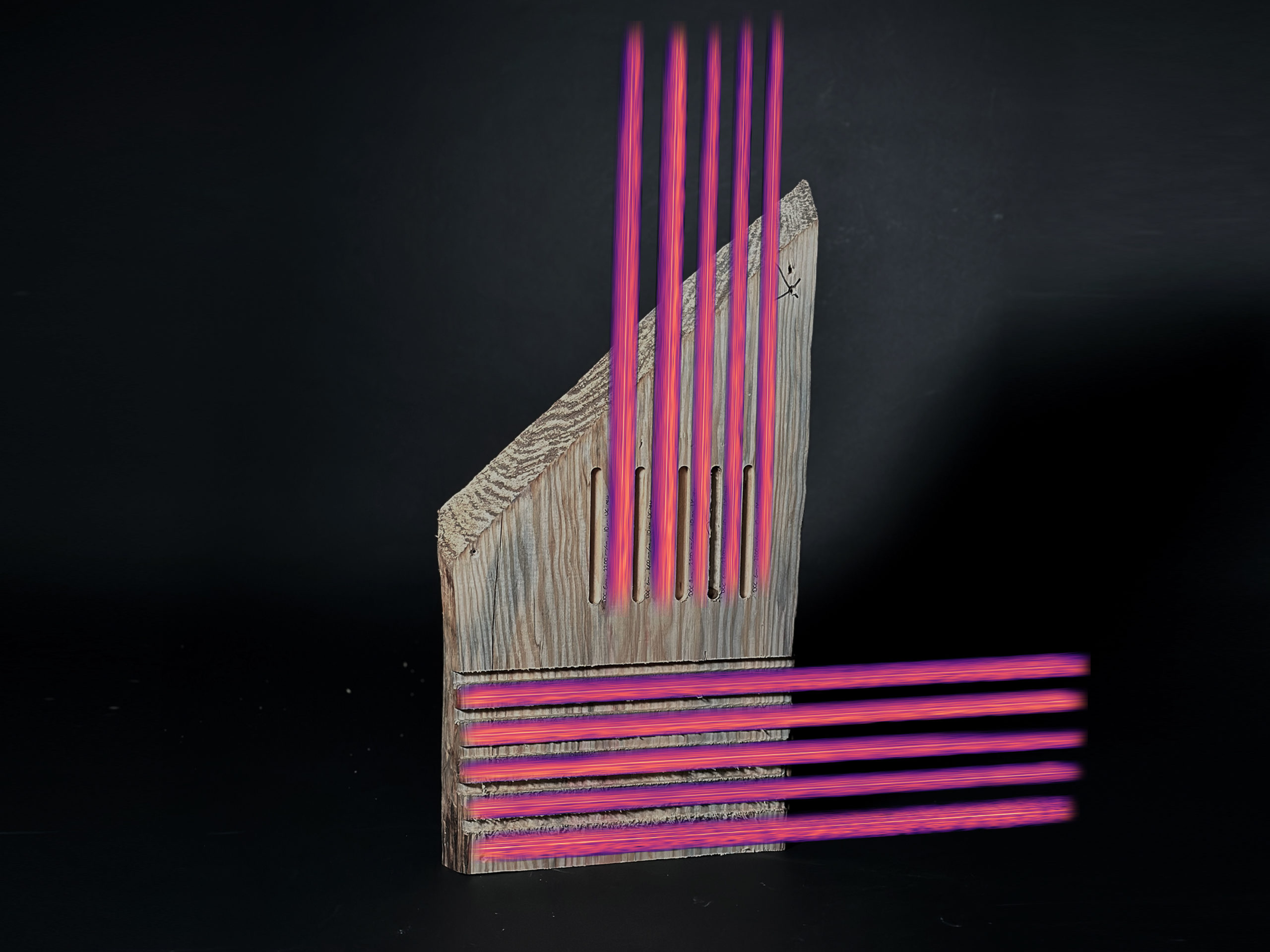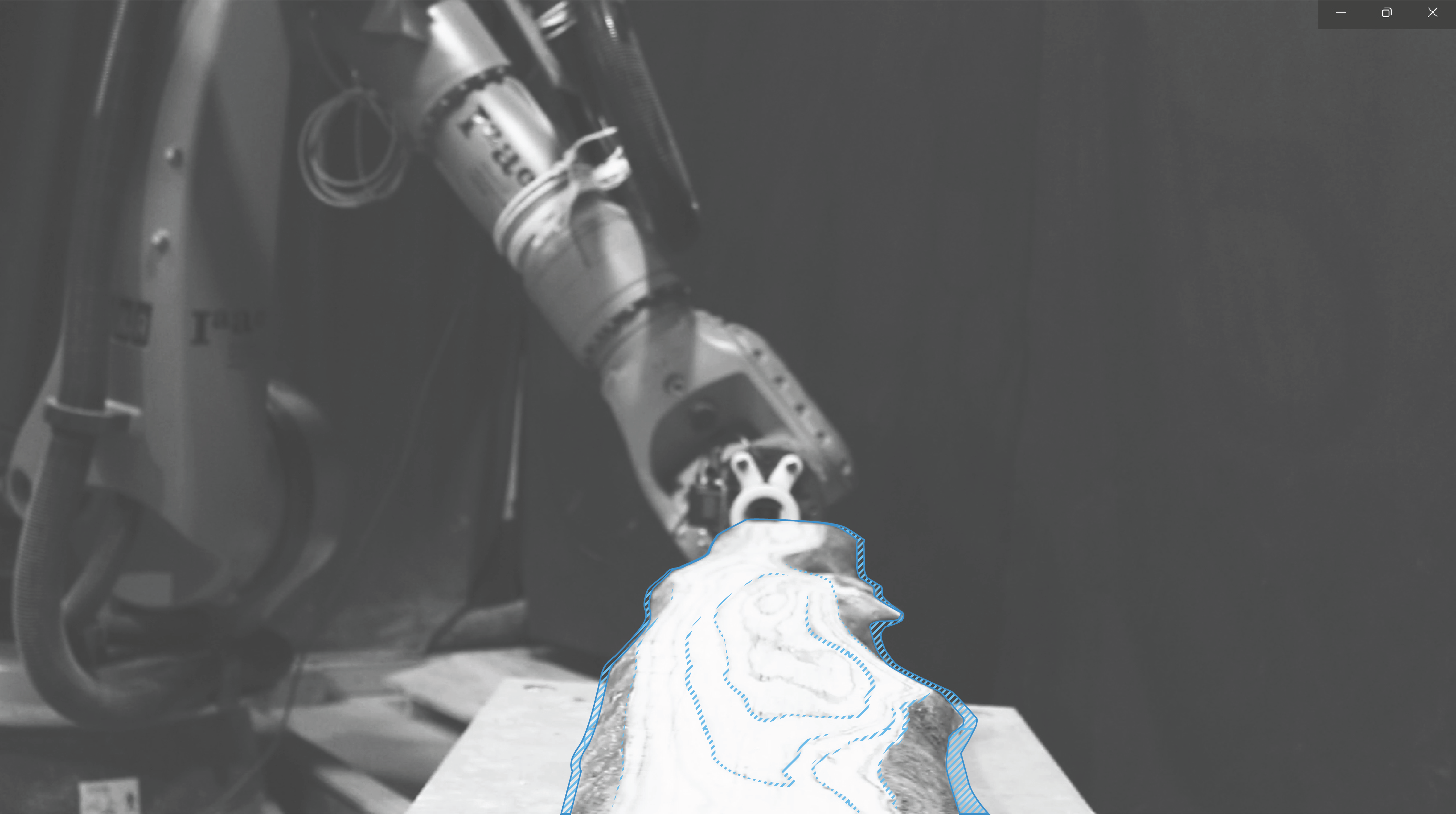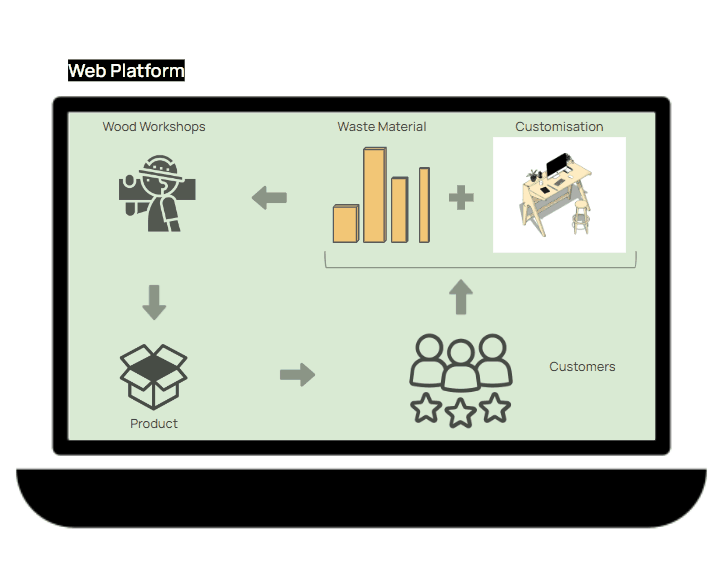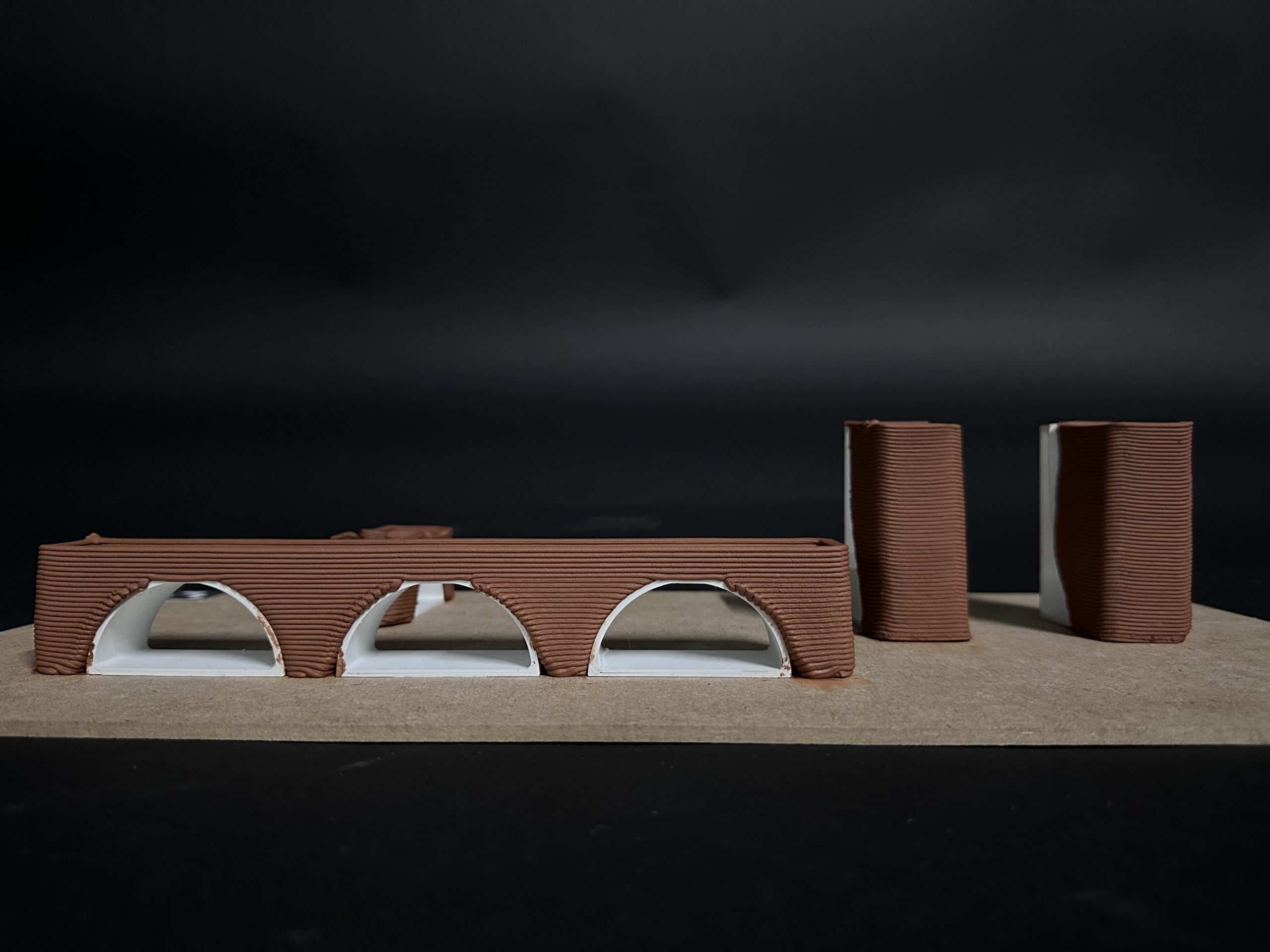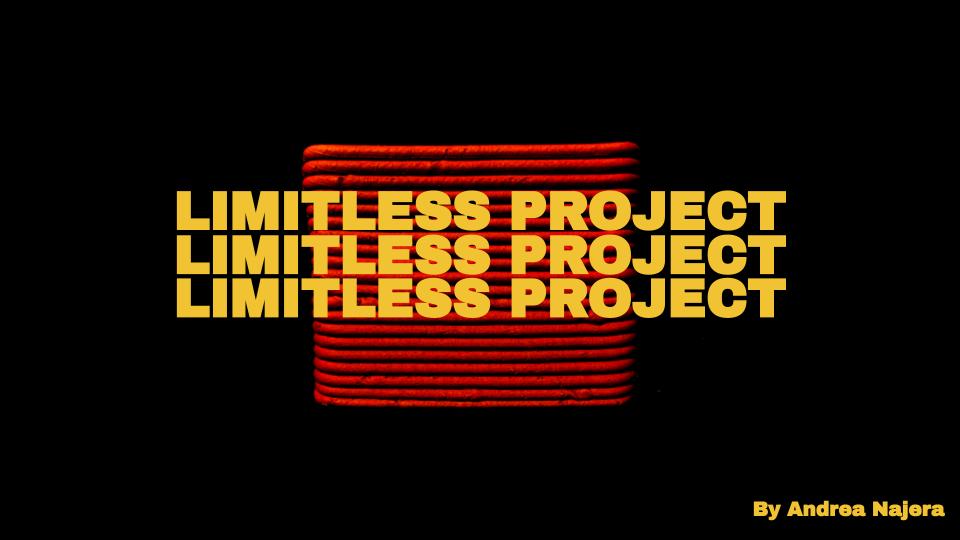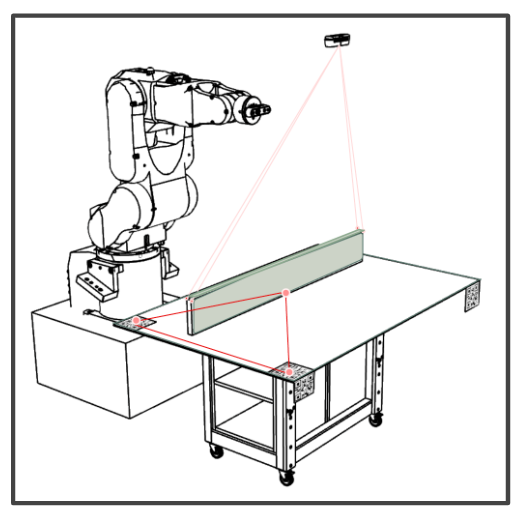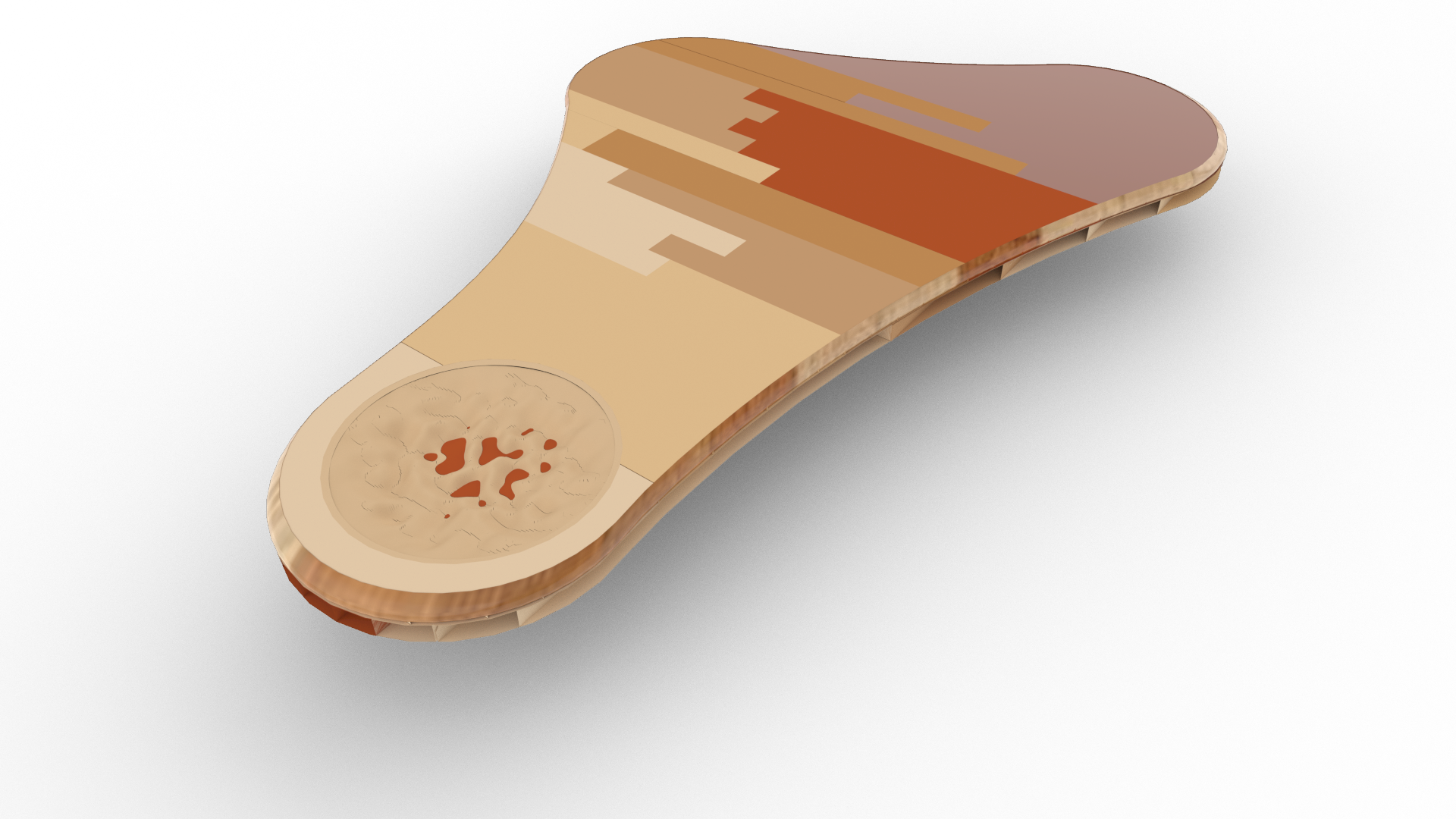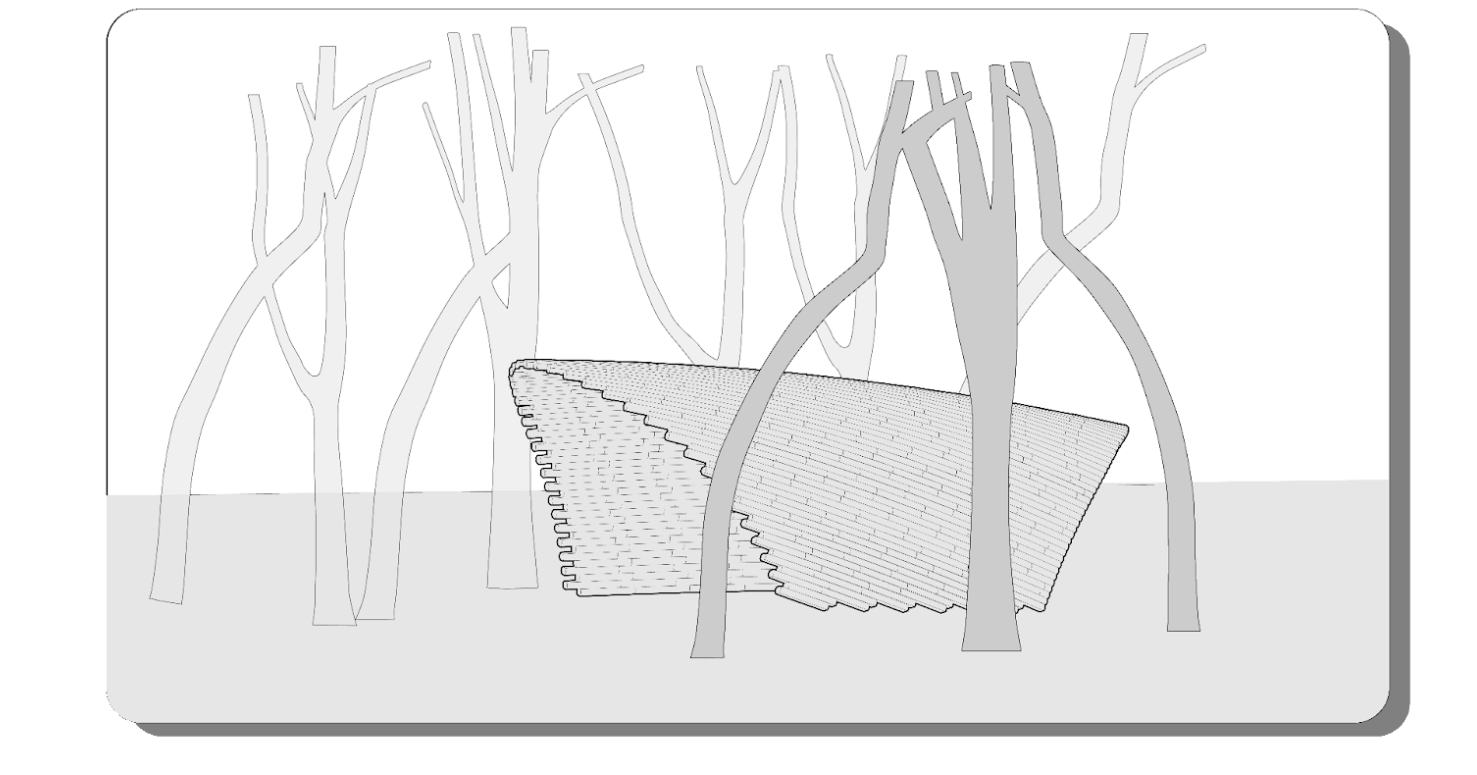Targeted toward students’ future careers in Academia, Start-up, or Industry, the second year of the Master in Robotics and Advanced Construction offers the opportunity to develop a thesis project with the support of IAAC infrastructure, experts and network.
The development of the project will be supported by advanced seminars in Technology, Theory, and Business to bring the proposal state of the art research that can really impact the construction industry.
In parallel to the development of the Thesis Project Studio, the second year of the Master in Robotics and Advanced Construction offers a series of seminars enhancing the theoretical, practical, and digital skills of the students. Students will also have the occasion to join cross-disciplinary workshops to build large prototypes and installations.
BENDATA
MATERIAL DATA DRIVEN STRATEGIES “BENDATA” explores how a material-informed strategy can control the bending of irregular leftover wood for bespoke architectural applications. Tackling wood leftovers, the research bypasses standardization by co-designing with nature, using post-tension bending, to achieve mass-customization. By listening to wood via a microphone during milling, material information is revealed to inform the … Read more
MURO DE AGUA
INTRO This study investigates innovative joinery solutions for modular evaporative cooling systems using 3D printed clay. With the rising global temperatures and subsequent increased demand for energy-consuming air conditioning systems, there is a crucial need for sustainable cooling alternatives. The research focuses on addressing the challenges of material shrinkage and joinery reliability in 3D printed … Read more
ECHOWOOD
SUSTAINABLE SOLUTIONS FOR BESPOKE ACOUSTIC DIFFUSER DESIGN SCANNING AND DATABASE ACOUSTIC EVALUATION DESIGN ROBOTIC FABRICATION
PRINT-SCAN-ADAPT
Context Is additive manufacturing going to change the way we fabricate? Certainly it is, additive manufacturing has an immense growth potential with a 22% annual growth as it has offers mass customization and reduced waste. One of the challenges in additive manufacturing is to improve the precision and reliability of the manufacturing process. This can … Read more
EMBEDDING ASSEMBLIES
Mechanical Inserts for 3D printed Clay Due to land scarcity, the construction industry pushes architecture to shift its focus towards the entire life cycle of the final construction, considering its various phases, from its sourced material and manufacture, to its utilization and eventual end of life. Minimizing material usage and construction time has provoked the … Read more
Business of Mobile Additive Manufacturing
Rapid urbanization demands more efficient construction methods: Labor shortage in the construction industry: It is important to note the type of machinery being used by these two companies for 3D printing. Tvasta uses a robotic arm equipped with an extruder for printing concrete and L&T uses a gantry system, which is a big framework inside … Read more
Harmonic Grain Craft
How can we ensure high quality products using non-standardized wood in architecture? Abstract Inspired by the success of the “Realform” research project, which ingeniously reuses non-standardized wood scraps and uses the grain data to create a seamless, material-based design, this project aims to advance the topic of sustainability in architecture. Building on the foundation of … Read more
SimplifAI
Changing architecture with AI Market study Architecture as a profession is well know for its long work hours and less pay. Because as an industry in general is the least optimised industry just above agriculture and hunting in 2020. This results into more work load and less output. Hence the productivity rate is negative 1.4,which … Read more
The Concept of ReWood Dynamics: A Sustainable Approach to Wood Products
The idea behind ReWood Dynamics centers on an innovative approach to using waste wood in the construction industry. This concept involves a two-phased process to transform discarded wood into a usable and sustainable building material. Initially, the concept requires a delignification treatment of waste wood. This process aims to enhance the structural integrity of the … Read more
CORNER
A City’s Revolution has come!Uplifting its community by changing the perception and usage of modern cities through Hygiene Barcelona’s lack of public toilets can lead to unhygienic situations such as relieving oneself on the streets of the city but also having to find another solution without the guarantee of knowing if the facilities will be … Read more
Robotic Fabrication
Robotic Wood Craft is looking to minimize the raw material foodprint through an efficient repurposing project. The project develops a Data workflow from the scanning of the logs to the Robotic Fabrication and assembly of the pavilion. The final prototype is a post tension structure, with different robot milling joints that maintain the connection in … Read more
Limitless Project
The industry of construction creates most of the waste in the world. By 2025 we expect to reach 2.2 billion tons globally. As a solution of this problem, industry 4.0 proposed the Additive manufacturing process, which is looking for the optimization of fabrication and construction adding layer by layer different materials; this process started being … Read more
Stream of Outcasts
Introduction Our use of forestry resources has seen an increase in efficiency aimed at standardizing wood, a material that is inherently non-standard and heterogeneous by nature. However, the byproducts generated from this process are predominantly used for energy through combustion rather than being transformed into useful products. As more wood products are expected in construction, … Read more
Timber Tailor
Furniture has become an essential part of modern day society. Problem Currently an average consumer has a two choices, one to either shop at IKEA and get a generic furniture that every household has or to go for a designer furniture that breaks their bank. With the consumers increasingly looking for products that represent their … Read more
PRINT POINT
The reference marking system for 3DP processes Problem Traditional 3DP processes lack accurate and reliable reference markers, which can cause errors and inaccuracies in the final print. This can be especially problematic for cyber-physical set-ups that require precise calibration and location of physical geometries on the 3D model. Solution This issue is resolved by Print … Read more
Adaptive AM in Robotics
Context Additive manufacturing is growing exponentially in many industries at many levels, pushing towards new upgrades as a competitive alternative by reducing its logistic and production costs and increasing its flexibility and adaptability to the market’s demand. However, there is still an important challenge that it is facing: a gap on matching references between physical … Read more
Context Aware Robotics AM
Context This project seeks for adapting the 3D printing process to known geometries used as supports or external elements as formwork, located in the physical space to save the costs of material and time to produce non reusable ones. These elements are detected through Computer Vision to update the toolpath on the digital model. There … Read more
Limitless Project
The construction industry creates a waste that is expected to reach 2.2 billion tons globally by 2025 (Transparency market research). Because of this the market started trying different new techniques to construct with less waste, that is how with the 4.0 industrial revolution came the Additive manufacturing process, that fabricates physical 3D objects layer by … Read more
Limitless project
This project is looking to be a tool that allow the monitoring, messure and documentation of the AM process at the moment of the printing with the help of conventional cameras, analog sensors, robot Data and open source technology Limitless project use different technology process to adquire information and process it. After the creation of … Read more
Robotic Scanning
Objective of this research is to create a robotic scanning workflow that creates high definition meshes for use cases in design and fabrication. Tools Hardware and software used in this research are – UR RobotIntel Realsense D405MoveitIndustrial Reconstruction Initial Tests The initial tests were intended at understanding the parameters of the camera to obtain an … Read more
ARtisan
The efficient utilization of forestry products plays a vital role in sustaining industries such as construction and furniture manufacturing. To meet the demands of mass production, raw materials undergo a process of standardization, enabling streamlined operations and increased output. However, this standardization process results in the generation of valuable by-products such as planar offcuts. These … Read more
Post Tension Wood
Post Tension wood is a project created in different steps. Extracting logs from trees from 12 – 15 diameters, this project scans each piece with the purpose of optimizing the fabrication and reducing the waste. Workflow Set Up & Calibration Production plan

